I Love the Holidays Because I Get to Dress Like This and It’s OK
If you've ever thought about writing an Op-ed . . .What I’ve Learned
I’d never written an op-ed until 3 years ago—but recently I published my third op-ed in The New York Times, and the process is so unlike other writing that I’ve done that I thought I might share a little of it.
I think one reason I hadn’t written opinion pieces before is that I’m normally happiest when exploring gray areas, pressing into areas of moral complexity in which I can see both sides of an issue. Opinion pieces are not about gray areas—you write them when you feel so strongly about a topic that you either write or scream.
Susan Shapiro, who wrote this very helpful book
says the mood you bring to writing an op-ed is, “You know what really pisses me off?”
Her book is useful for anyone wanting to give the form a try—she teaches journalism and includes tips and student essays and what NOT to do.
I wrote my first piece because what was really pissing me off was the racist MS state flag (one quarter of the flag had the stars and bars of the Confederacy). As a poet, I’m used to crickets when I publish something, so when I published this in the NYT, I was stunned by the number of messages I received. This experience was completely wild and almost entirely positive—well, a few death threats, sure, but mostly positive. Later, Fortune magazine named my op-ed as “one of the four or five things that embarrassed” the Gov. into allowing a new MS state flag. That felt pretty damn good, and I enjoyed knowing I was part of a conversation that mattered, but I also felt exhausted by it and thought I wouldn’t write in the form again.
And then, last year, I got pissed off all over again, when Trump made the suggestion that the solution to gun violence in the schools is arming the teachers. After that piece ran, I was interviewed on CNN, and again felt that I’d helped call attention to something that shouldn’t be normalized.
And this fall, during my residency at Loghaven (which I wrote about in my last Substack), I felt the same urgent pissed-off burning and wrote about the trend in higher education to look only at “outcomes,”—measured in dollar terms—and equare successful education with successful business, which allows school and politicans to defund the humanities, especially in poor states.
One key I’ve learned about op-eds is that you should write about a topic in which you’re a stakeholder. Being a stakeholder gives you an authority, a right to have your opinion be heard. Many of us shy away from thinking we’re an expert on something because that implies that we have all the answers. But replace “expertise” with “afflilation” or “identity” and you’ll find there are many areas in which you have expertise. My three pieces illustrate various identities—as a Mississippian who didn’t want to fly a flag, as a professor who didn’t want to carry a gun, and as a professor who believes in the power of the humanities and doesn’t think they should be reserved for rich students.
Want to try one? Make a list of all of the roles you have, even those that are seemingly ordinary. If you’re a grad student, you are a stakeholder in education, and might be fired up about health care. Or perhaps you’re employed and a union member, or you’re a parent who notices a trend that affects your child, etc, or your life has been impacted by some type of policy. What are you pissed off about that ties into an issue affecting others?
Here’s the link to my piece which ran Nov. 15. It was the NYT’s “Most emailed article of the day” and the NYT ran several letters of support, including from Dr. Rebecca Oppenheimer (“Curator, Professor, Department of Astrophysics, American Museum of Natural History”). Of course I had to google her to see if she is any relation to THAT Oppenheimer. I’m still not sure, but “She is the co-discoverer of the first brown dwarf, called Gliese 229B.” Why does that make me happy? She “also works on faint white dwarfs.” I love this world.
And here’s my 2nd favorite piece of mail, because this writer (who saw the piece republished in The Houston Chronicle) had nothing whatsoever to say about my piece but believes I’ve used a preposition incorrectly (and cites the 1937 Websters to prove it, and uses a highlighter on a 1950s postcard—it’s all so delightfully crochety). M.P. Treakle, whoever you are, you’re kinda awesome.
And here’s a clip of a TV interview The New York Times Close Up with Sam Roberts in which I spend the last few minutes trying not to cough. I come in around minute 12.
Ok, we hearby leave the realm of the NYT publishing world and go back to our regularly scheduled programming in which I publish poems and micro-memoirs that earn me dozens of readers a decade.
Something Someone Smarter Than Me Said
Melissa Febos is one of my fav contemporary essayists, a very clear-sighted and original thinker, writing often on women’s issues from a unique perspective (before she became a professor at the Univ. of Iowa, she was a pro dominatrix sex worker). I adore her new book on issues of craft, Body Work, and will teach an excerpt of it in my spring CNF workshop. I recently reread her book of essays, Girlhood, and was struck by this passage in which she describes what she calls her “nodules”:
". . . the set of practices of which I make sure to include two or three in any given day, though my best days include all six: morning journaling, a meeting [Febos is a recovering addict and so she means an AA meeting], exercise, meditation, writing, and meaningful contact with friends. Most of these activities serve other roles in my life and are motivated by multiple intentions, but my emotional balance depends on all of them.”
What struck me about that passage is how clearly Febos knows the practices and behaviors that keep her sane and happy. She’s probably keenly aware of her needs because she’s done the work of introspection and moral reckoning required to get and maintain sobriety, but I think all people could benefit from delineating their own set of nodules. Then, if we’re feeling “off,” we can figure our what essential activities have been ignored and regain our “emotional balance.” What’s funny is that, even as we recognize that activites make us happy, we can forget to make time for them. How can we be fully realized humans if we don’t make time for these practices that make us most ourselves?
I’ve sometimes reflected on this when giving a reading and someone comes up to have a book signed and sighs and says, “I used to love to write in high school and college. But I haven’t written in years.” Often they say this with a laugh but seem pained and embarrassed by this confession. I certainly don’t think everyone needs to be a writer, but if people feel that writing is a nodule for them—one of the activities that they must do to feel authentic and alive, then they need to remember that and prioritize it, and I usually offer some encouragement in that regard when I hand over the signed book.
My nodules overlap somewhat with Febos’—writing, exercise (bonus if the exercise can be outside—the natural world is a nodule for me), and meditation (I’m chagrinned to write that last one, but I started mediation during Covid and have found it slow but good medicine). Meaningful contact with friends and family. And reading.
If you read my last issue of The Bethannigan, you know I just had the most marvelous residency at Loghaven, in Knoxville, TN. The point of a residency is to take you out of your routine, and that’s why those weeks were so precious as I had as much writing time as I could ask for. Though it’s true that being wrenched from routine meant the absence of certain other nodules (cf the above regarding meaningful contact with family—I missed the physicality of my boys, their hugs, their skin—terribly).
It’s also an interesting experiment to see what your nodules are NOT. At one point I was walking with another resident, an architect, who’d just placed a rush order for clay; she said she’d gotten so “in her head” with design that she was craving tactile creativity. “I just go crazy if I haven’t made something with my hands, you know?” she said. And only when she said that did I realize—I’ve never felt that way. I can’t draw or sculpt or make art, and I don’t even have the urge. Making art isn’t a module for me. However, as happy as I was that I for five weeks my meals were provided, I also missed cooking for my people. I enjoyed the break from cooking at first but by the end was bookmarking recipes in the Times and plotting elaborate holiday meals.
So, dear reader—what are your nodules? It’s clarifying to consider them, and then to track how often we’re investing our time in them and allowing them to restore us to balance.
So I promised Op-eds and Oppenheimers and Writing Ops—Here’s the Writing Op
Imagine an uninhabited island of astonishing natural beauty, ten miles long--tidal forest, live oaks bearded with Spanish moss (one tree estimated to be 800 years old), grassy wetlands bisected by waterways. Now pepper that island with a menagerie of animals, both endangered (loggerhead sea turtles and wood storks) and quirky (feral Ossabaw hogs descended from foundation stock by Spanish explorers, and feral donkeys everywhere:
Now add just enough evidence of the origins of the island’s 4,000 years of human habitation—250 native archeological sites and shell middens—as well as the ruins of much later structures, such as a Spanish colonial mansion built by wealthy industrialists, their 1880s clubhouse with bunk beds, their 1918 boarding house to host the “kennel man” who cared for the family’s hunting dogs, the oyster shell tabby cabins built by the enslaved people who worked for the family, and even primitive cabins constructed by artists in the 1970s for an artist colony. All of this, banded by deep sandy beaches with fantastical driftwood that reads like installation art.
Now imagine that this island is just a twenty-five minute boat ride from Savannah.
I’d never heard of Ossabaw Island before I was invited to teach there in March of ’22 for the Ossabaw Island Writing Retreat, a 6-day gathering of writers who attend workshops and faculty readings. Here’s a chunk of the group, and my youngest:
While there, I fell in love with the island (and one of its feral donkeys).
And I was fascinated by the diverse kinds of history and Ossabaw’s patron saint, Sandy West, the daughter of the wealthy Northern industrialists who lived on the island. After her parents died, she lived on Ossabaw for decades, hosting literary luminaries, including Annie Dillard, Alice Walker, and Ralph Ellison, up until old age forced to moved from the island (she died at the stroke of midnight on her 108th birthday). In 1978 she sold the island to GA as a Heritage Preserve ‘… that Ossabaw Island shall only be used for natural, scientific, and cultural study, research, and education, and environmentally sound preservation, conservation, and management of the Island’s ecosystem.” It’s under that umbrella that the writing workshop operates, and I’ll be going back this March 8-13 with my husband (who is teaching fiction) and our sons. I’ll be teaching the CNF workshop, which is LIMITED TO 6 PEOPLE!
Why am I telling you about this? Because there are SCHOLARSHIPS!!
And because this is the first year of these 3 full scholarships, no one seems to know about them. In fact, I just heard from the director. Would you like to know how many people have applied for the CNF scholarship so far? NONE! It’s $50 to apply—but right now, your odds are 100% of winning! So come join me in Ossabaw? Or tell your writing group? Is there someone you know who has “writing” as a nodule and could use 5 days in a gorgeous place to kickstart creativity? Ot is it you? Meet me there. I will introduce you to my donkey. My donkey will like me a little more than he likes you, but you will be okay with that.
Why I Love Lydia and You Will Too
Lydia Davis didn’t want her new book of extremely short stories available on Amazon so she partnered up with Bookshop.org to create a new publisher so the book is ONLY available in bookstores. In this piece in The Gaurdian, she says she does not “believe corporations should have as much control over our lives as they do.” Amen, sister Lydia. Is it worth ordering this book from your Indie? Read this and tell me it’s not:
That’s It, Dear Readers. I’m wishing you an unbelievably joyous holiday season. And if you’re feeling a little Grinchy at times, well that’s Ok too:
The Bethannigan does not accept money, but does accept LOVE. Give me some love, y’all—tell your people:

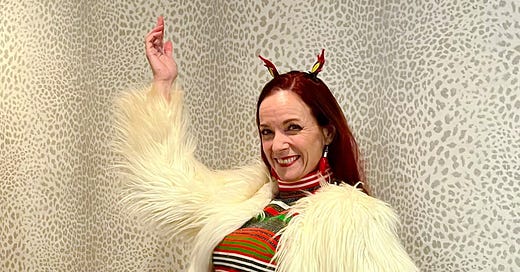



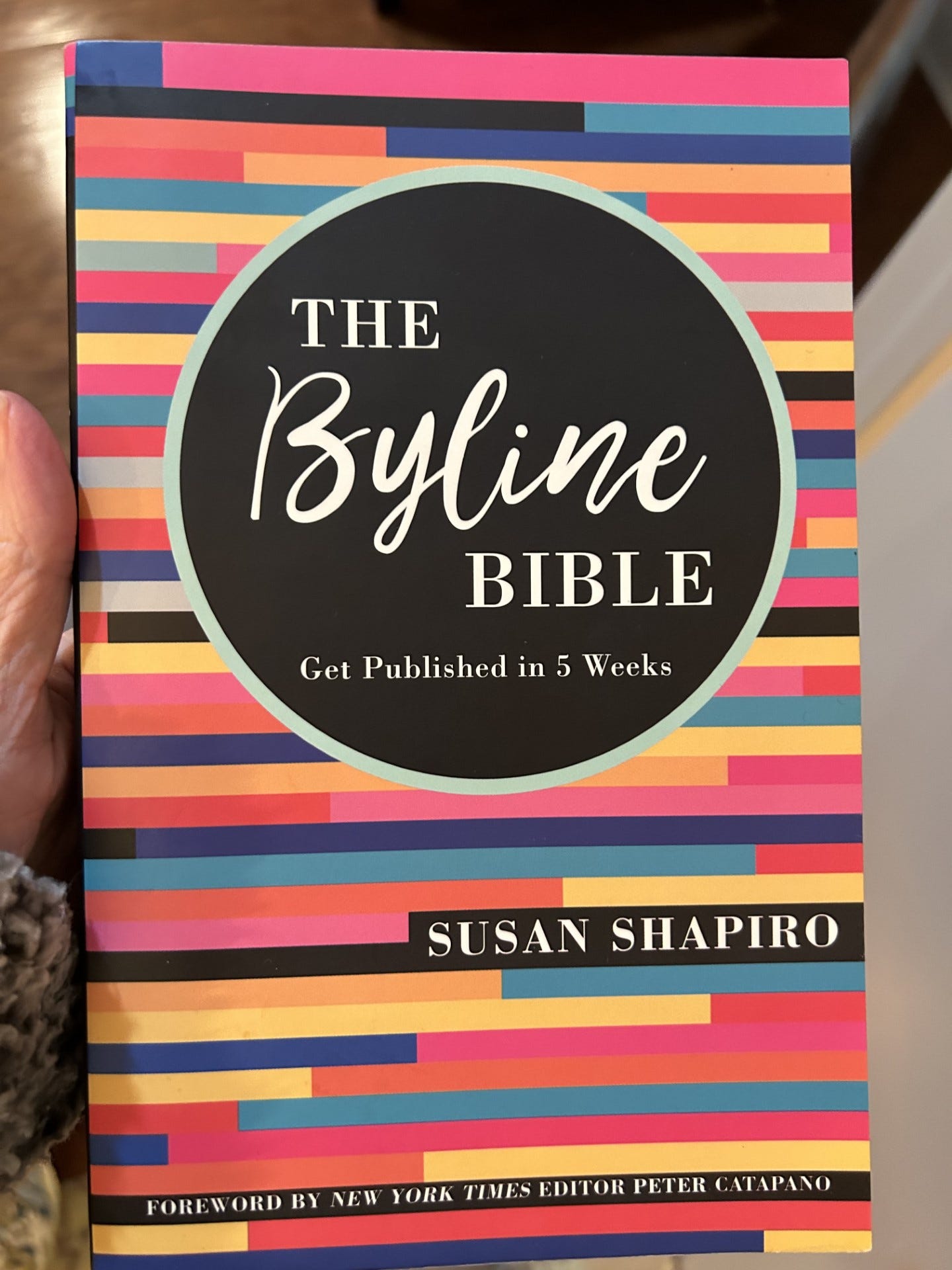
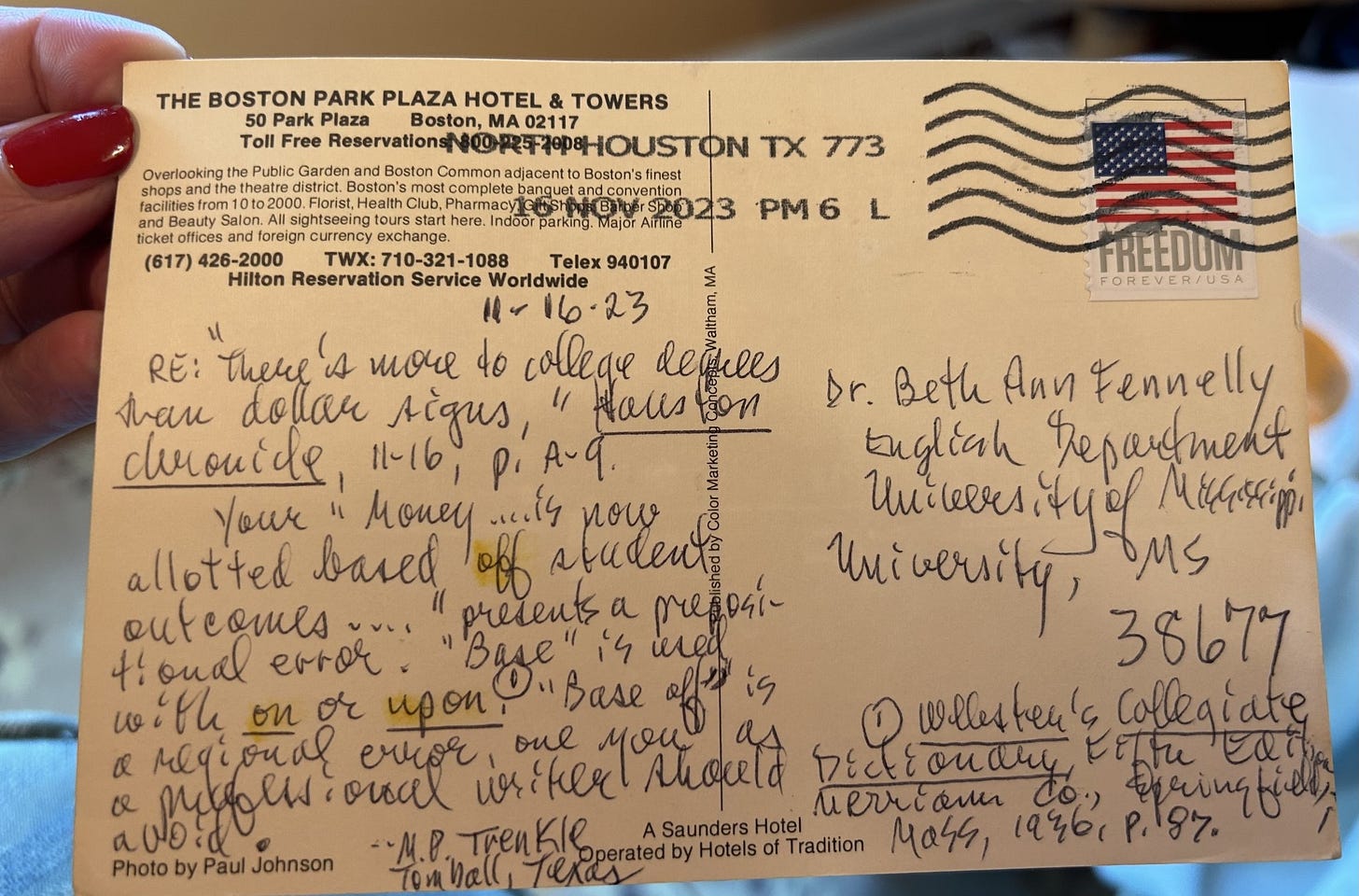
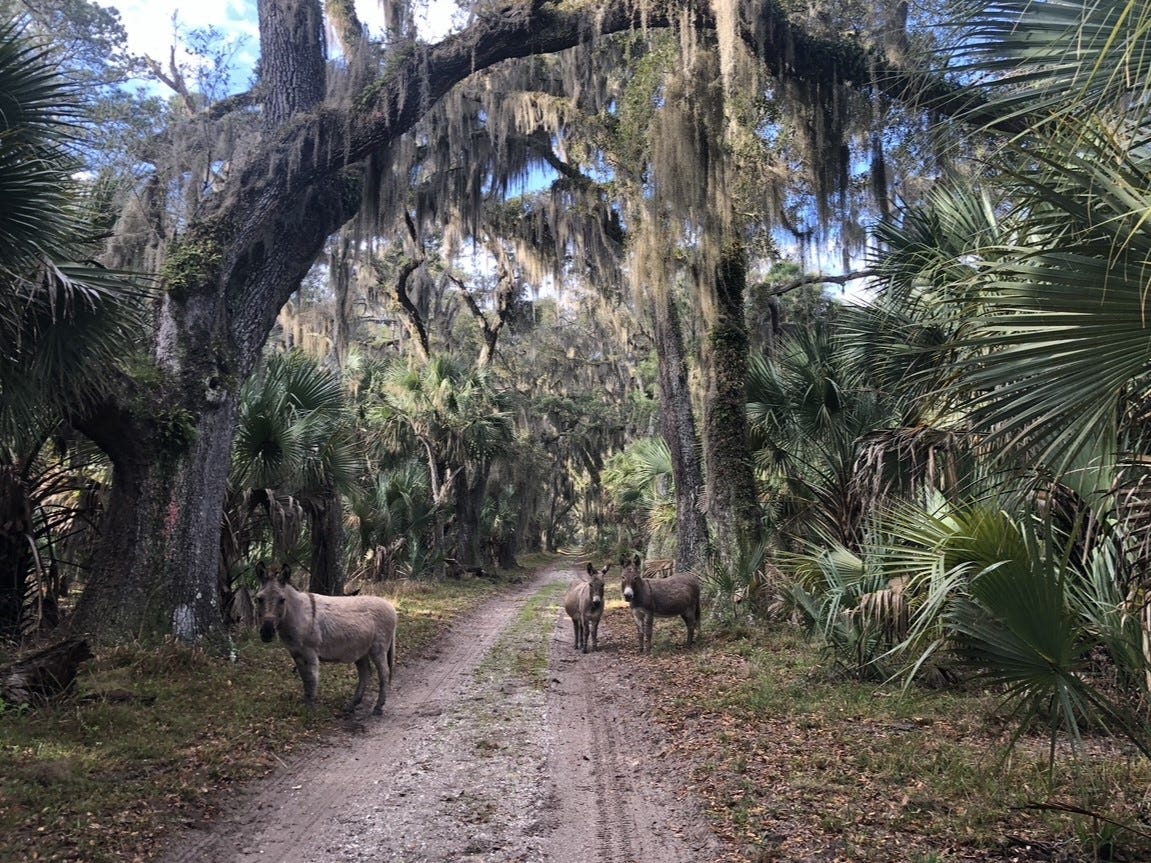
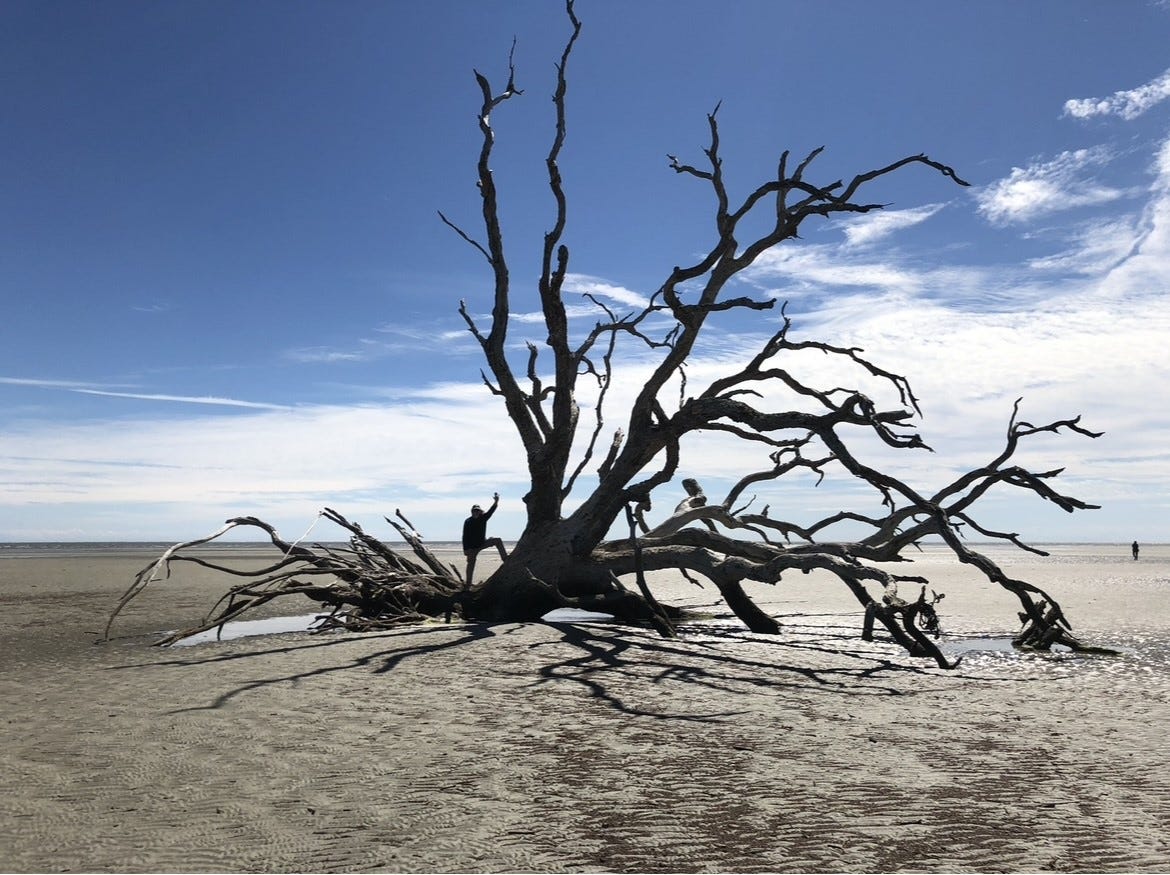
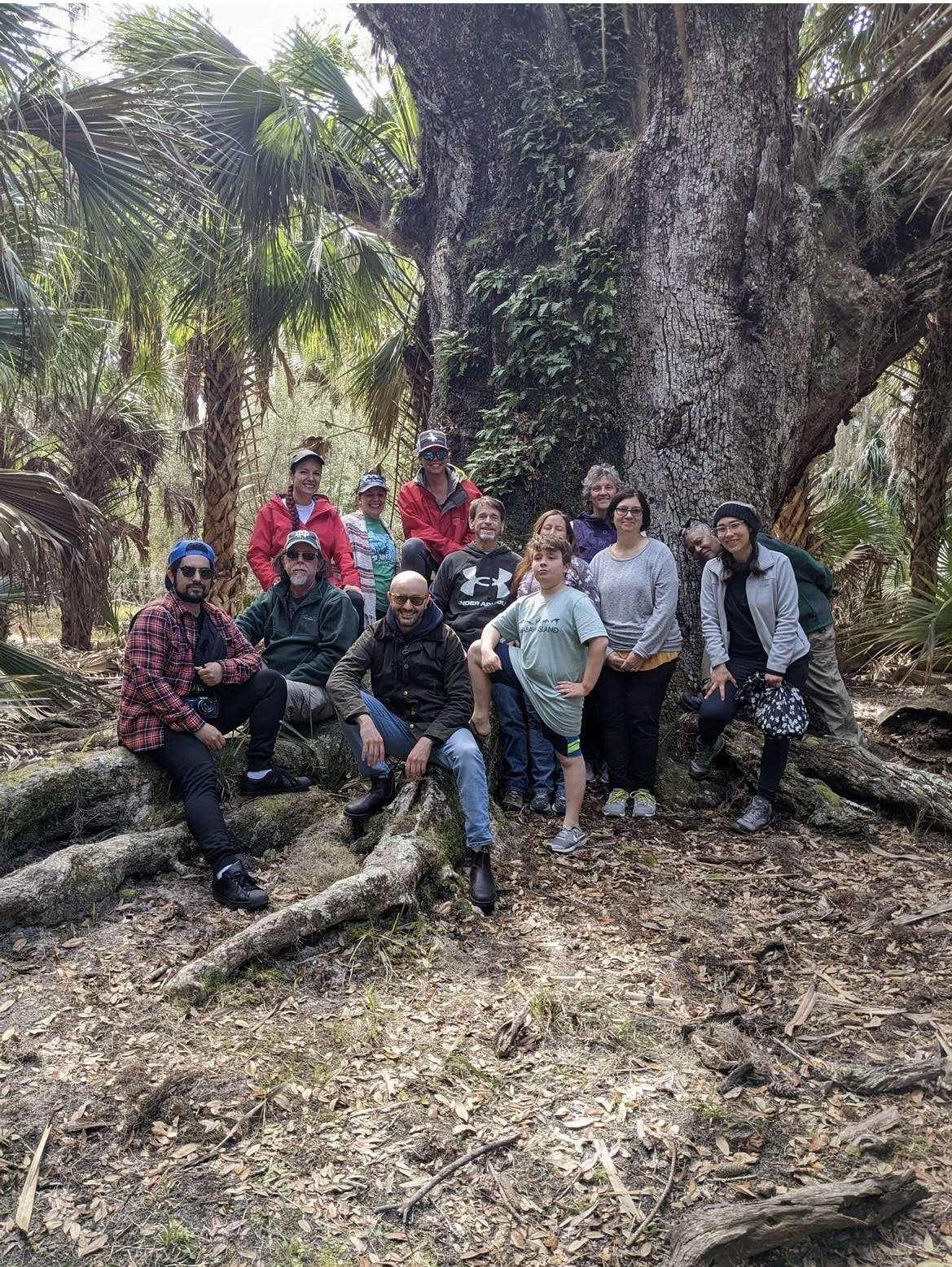


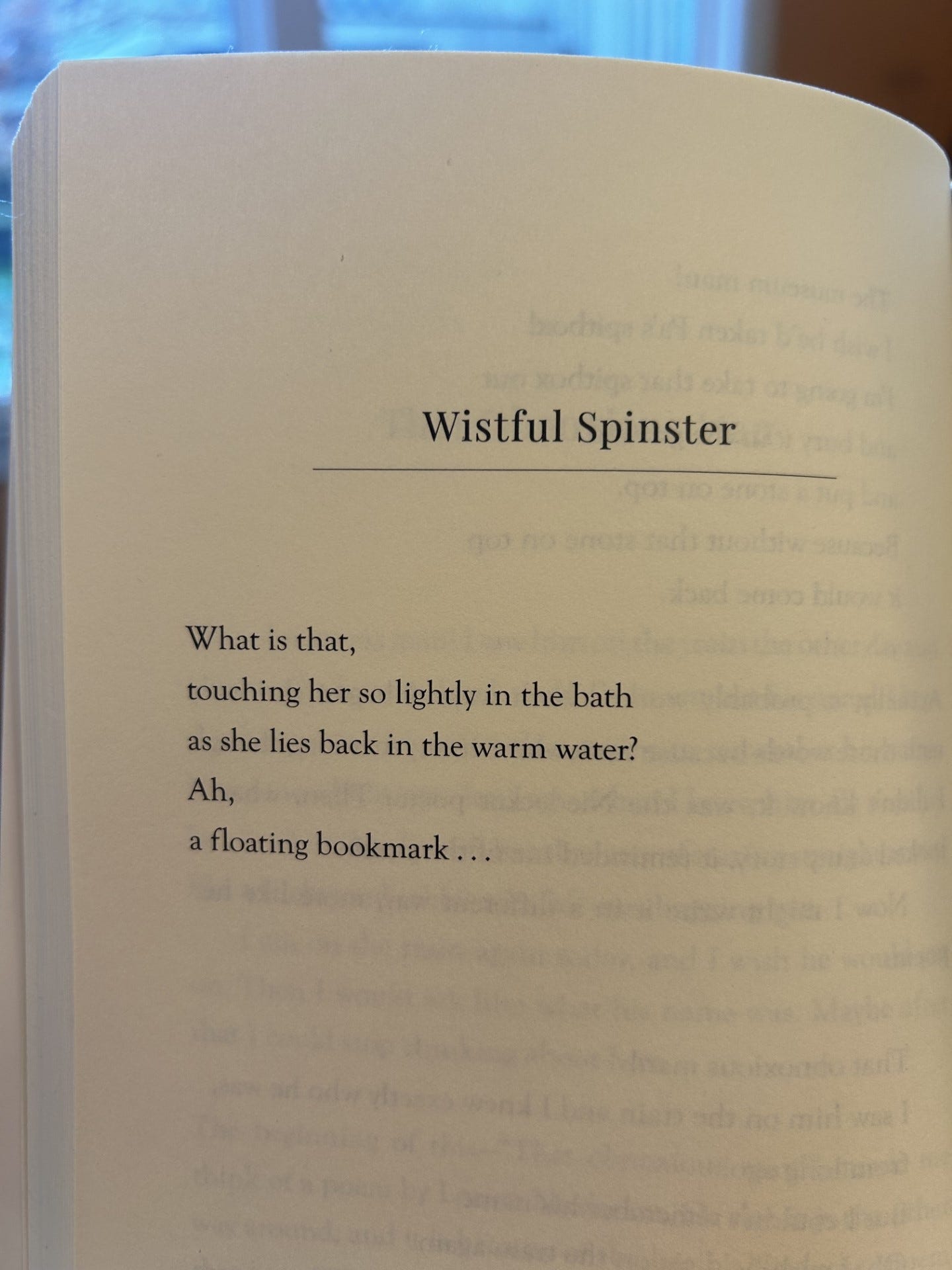

So sometimes the world makes you stop and read words. I've been struggling with imposter syndrome because who wants to read something I wrote? I'm not an expert, just a workaholic. Anyway, I started to respond to some emails and then saw your new post, so I stopped to read. These lines: " Being a stakeholder gives you an authority, a right to have your opinion be heard. Many of us shy away from thinking we’re an expert on something because that implies that we have all the answers. But replace “expertise” with “afflilation” or “identity” and you’ll find there are many areas in which you have expertise."
Which led to more cups of coffee and pondering that will last far into the day. Thank you for the words.
Enjoy that writer’s retreat in March. It sounds like an uplifting opportunity. And your feedback on something I wrote at UGA helped me water that seed. Many thanks.